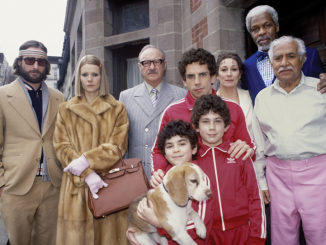
Reprinted from The New York Times by on November 28, 2020.
“’Hollywood’s like Egypt: full of crumbled pyramids. It’ll never come back. It’ll just keep on crumbling until finally the wind blows the last studio prop across the sands,’” writes Brook Barnes in The New York Times.
“David O. Selznick, the golden era producer, made that glum proclamation in 1951. A new entertainment technology, TV, was emasculating cinema as a cultural force, and film studios had started to fossilize into bottom line-oriented businesses. As Selznick put it, Hollywood had been ‘grabbed by a little group of bookkeepers and turned into a junk industry.’
“Since then, Hollywood has repeatedly written its own obituary. It died when interlopers like Gulf + Western Industries began buying studios in the 1960s. And again when Star Wars (1977) and Superman (1978) turned movies into toy advertisements. The 1980s (VCRs), the 1990s (the rise of media super-conglomerates), the 2000s (endless fantasy sequels) and the 2010s (Netflix, Netflix, Netflix) each brought new rounds of existential hand-wringing.
“Underneath the tumult, however, the essence of the film industry remained intact. Hollywood continued to believe in itself. Sure, we churn out lowest common denominator junk, studio executives would concede over $40 salads at the Polo Lounge. It’s how we make our quarterly numbers. But we can still generate the occasional thunderclap, with ambitious films like Get Out and 1917 and Black Panther and Once Upon a Time … in Hollywood arriving on big screens and commanding the culture for months on end. …






